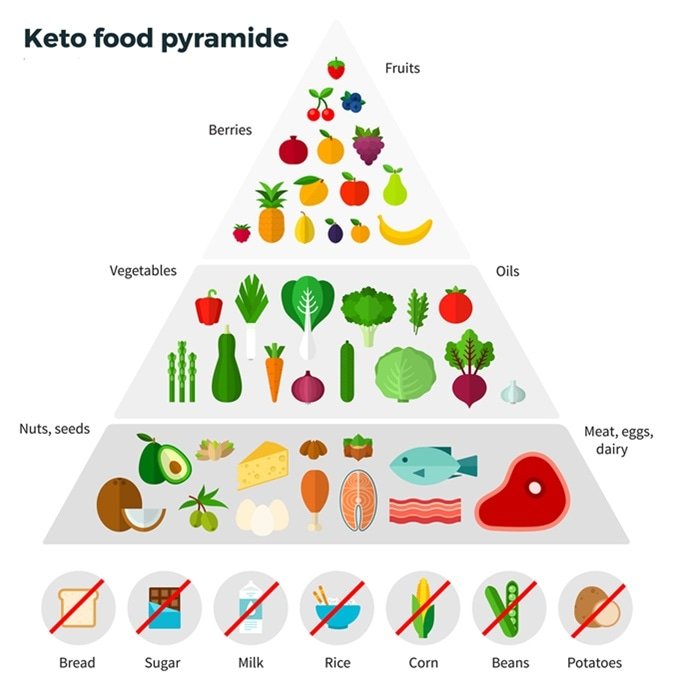The Relationship Between High Blood Pressure and the Keto Diet
If you’re living with high blood pressure and considering the keto diet, you may be wondering how this eating plan can impact your condition. Let’s explore how the keto diet affects blood pressure and whether it can be a safe choice for managing hypertension.
How Does the Keto Diet Work?
The keto diet is a high-fat, low-carbohydrate eating plan that aims to switch your body’s primary fuel source from carbohydrates to fats. By significantly reducing your carbohydrate intake, your body enters a state called ketosis, where it produces ketones from stored fat to use as energy. This metabolic state is the foundation of the keto diet.
The Impact of the Keto Diet on Blood Pressure
For individuals with high blood pressure, the keto diet can offer potential benefits. When your body is in ketosis, it produces less insulin, which can help reduce inflammation and improve blood pressure levels. Lowering your carbohydrate intake and maintaining stable blood sugar levels on the keto diet can also contribute to better heart health, potentially reducing the risk of hypertension-related complications.
Is the Keto Diet Safe for High Blood Pressure?
While the keto diet may have positive effects on blood pressure, it’s essential to approach this dietary change cautiously, especially if you have existing health conditions like high blood pressure. Before starting the keto diet, consult with your healthcare provider to determine if it’s a safe and suitable option for you. Your doctor can offer personalized guidance based on your medical history and help monitor your blood pressure as you transition to this eating plan.
Consult Your Doctor Before Starting the Keto Diet
Before embarking on the keto diet, schedule a discussion with your doctor to discuss your health status, dietary goals, and potential risks associated with a high-fat, low-carb diet. Your healthcare provider can assess whether the keto diet aligns with your health needs, provide recommendations on balancing key nutrients, and monitor any changes in your blood pressure or overall well-being throughout the process.
Make Informed Decisions About Your Health
Being informed about the potential effects of the keto diet on high blood pressure empowers you to make educated decisions about your health. Understanding the mechanisms behind the keto diet and its impact on blood pressure can guide you in choosing the most suitable dietary approach for managing hypertension while prioritizing your overall well-being.
The Benefits of the Keto Diet for Hypertension
While the keto diet is not a one-size-fits-all solution, it may offer specific advantages for individuals with high blood pressure. By adopting a nutrient-dense, low-carb eating plan like the keto diet, you can potentially improve your heart health, manage your blood pressure, and enhance your overall quality of life. Consider the following benefits of the keto diet for hypertension:
Weight Loss and Improved Heart Health
One of the primary benefits of the keto diet for individuals with high blood pressure is weight loss and improved heart health. By reducing your carbohydrate intake and focusing on healthy fats, you can promote weight loss, reduce inflammation, and enhance cardiovascular function. These changes can have a positive impact on your blood pressure readings and overall heart health.
Stabilized Blood Sugar Levels
The keto diet emphasizes stable blood sugar levels by limiting carb intake and promoting the consumption of fats and protein. By stabilizing your blood sugar, you can prevent spikes and crashes in glucose levels, which can be beneficial for managing hypertension and reducing the risk of complications associated with high blood pressure.
Reduced Inflammation and Oxidative Stress
Chronic inflammation and oxidative stress are common factors contributing to hypertension and cardiovascular disease. The high-fat, low-carb nature of the keto diet may help reduce inflammation and oxidative stress in the body, leading to improved blood vessel function, lower blood pressure, and enhanced overall heart health.
Enhanced Insulin Sensitivity
Insulin resistance is a common issue in individuals with high blood pressure and metabolic disorders. The keto diet can enhance insulin sensitivity by reducing carbohydrate intake and promoting ketone production for energy. This improved insulin sensitivity can lead to better blood sugar control, decreased inflammation, and potential benefits for managing hypertension.
Improved Cardiovascular Health
The keto diet’s emphasis on heart-healthy fats, lean proteins, and nutrient-dense vegetables can support optimal cardiovascular health. By prioritizing nutrient-rich foods and avoiding processed carbohydrates and sugars, you can enhance your heart health, reduce inflammation, and promote healthy blood pressure levels.
Conclusion
In conclusion, the keto diet can potentially benefit individuals with high blood pressure by promoting weight loss, stabilizing blood sugar levels, reducing inflammation, and enhancing heart health. However, it’s crucial to consult with your healthcare provider before starting any significant dietary changes, especially if you have hypertension or other medical conditions. By working with your doctor to assess the safety and suitability of the keto diet for your individual needs, you can make informed decisions about managing your blood pressure and improving your overall health. Remember to prioritize a balanced approach to nutrition, listen to your body’s signals, and seek professional guidance to support your well-being on the keto diet. Stay proactive about your health, stay informed, and take control of your journey toward better health and wellness.

